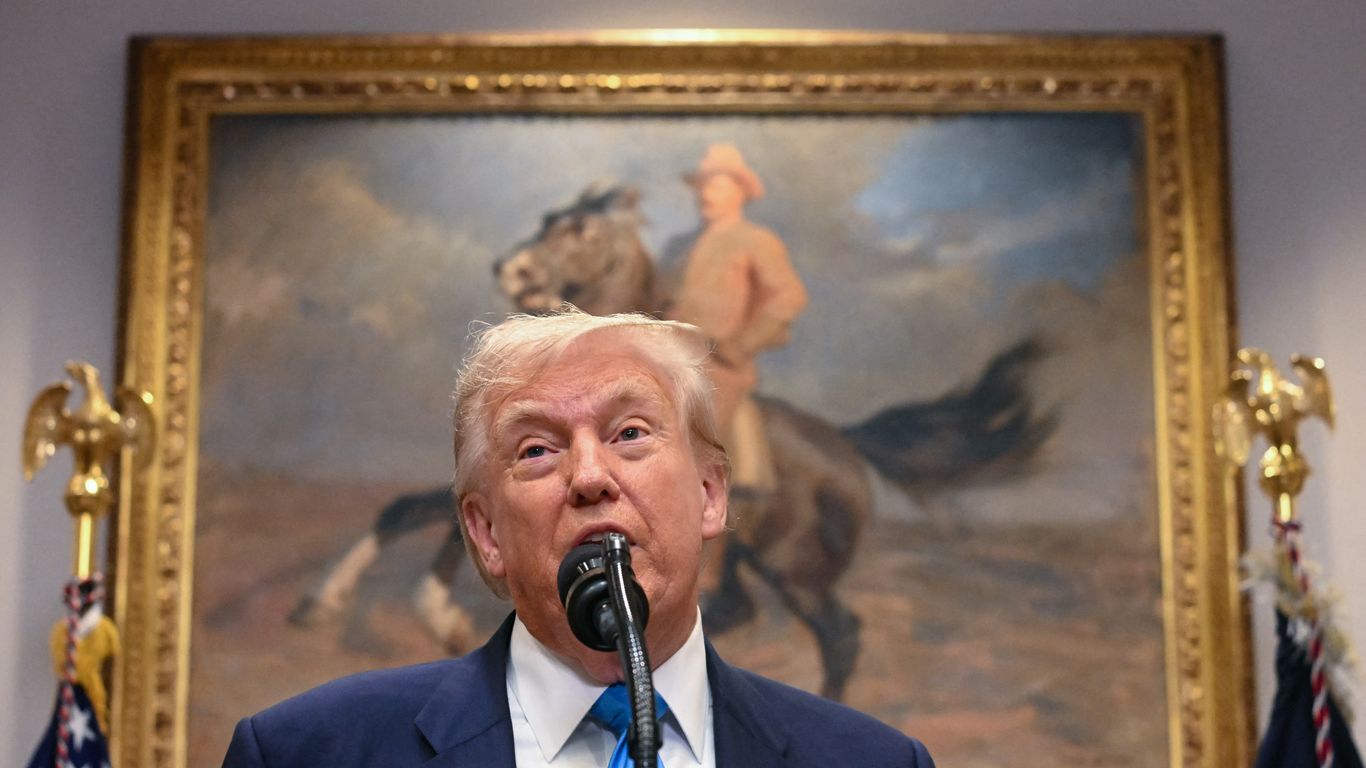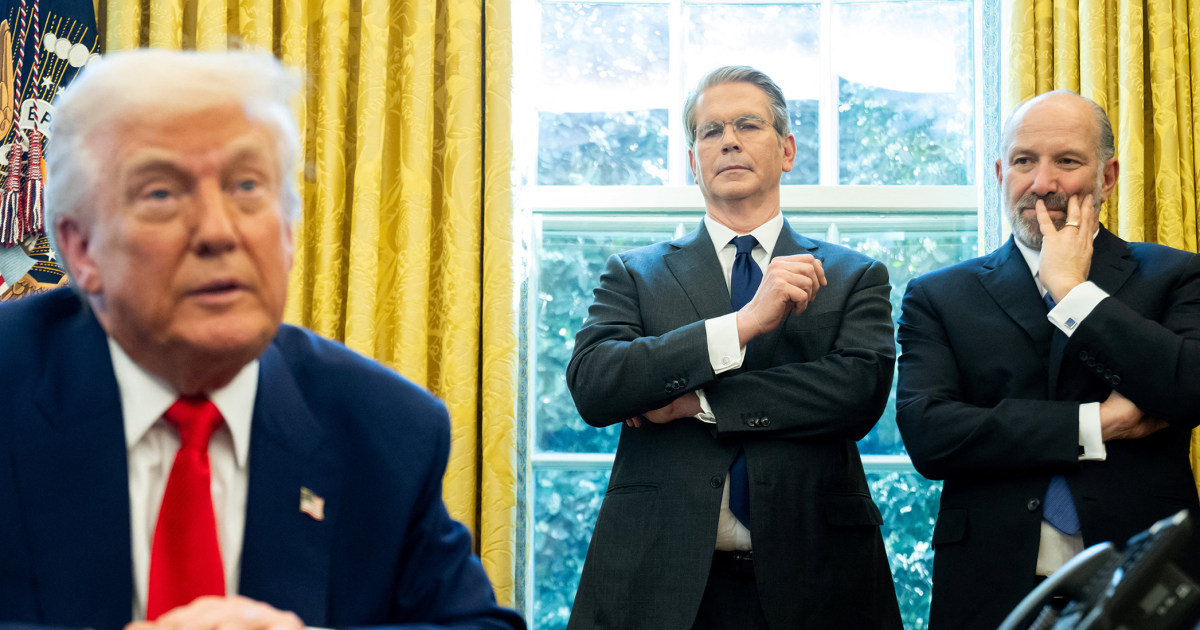Small Businesses Struggle with Impact of Trump's Tariffs

Introduction
Small businesses in the US are feeling the impact of President Trump's tariffs, and it's not looking good. According to Yahoo Finance, these businesses are facing a staggering $202 billion hit. This is causing major concerns for the economy and for business owners who are already struggling to stay afloat during the COVID-19 pandemic. Tariffs are taxes on imported goods, which means that small businesses who rely on imported products are now facing additional expenses that they may not be able to afford.
Key Details
The impact of these tariffs is far-reaching, and it's not just small businesses that are feeling the effects. Bloomberg reports that even larger corporations are being hit with these taxes, with companies like General Motors and Ford paying hundreds of millions of dollars in tariffs. These added expenses are making it difficult for businesses to compete globally and are causing job losses and reduced profits. And with the pandemic already causing financial strain, this latest blow is making it even harder for businesses to survive.
Impact
The consequences of these tariffs are not just financial. The trade war with China has also caused disruptions in supply chains, making it difficult for businesses to get the products they need to operate. This has caused delays and increased costs, which in turn can lead to higher prices for consumers. This is a major concern for the overall health of the economy, as small businesses are the
About the Organizations Mentioned
Yahoo Finance
## Yahoo Finance: A Comprehensive Overview **Yahoo Finance** is one of the most prominent online platforms for business news, financial information, and real-time market data. Established in 1997 as a component of Yahoo Inc., it quickly became a go-to resource for investors, traders, and anyone seeking up-to-the-minute financial insights. The platform offers comprehensive stock quotes, interactive charts, company profiles, analyst ratings, and in-depth news coverage across global markets. ### Core Functions Yahoo Finance aggregates content from leading business outlets, including Reuters, Bloomberg, and CNBC, providing users with a centralized hub for financial news. Its intuitive interface features customizable watchlists, portfolio tracking, and educational tools, making it accessible to both novice and experienced investors. Additionally, the platform offers advanced tools for technical analysis, historical data, and earnings calendars, catering to a wide spectrum of financial interests. ### Historical Milestones Originally launched as a simple stock quote service, Yahoo Finance evolved rapidly, adding interactive features and expanding its content offerings. In 2008, it introduced Yahoo Finance TechTicker, a video program focusing on technology and market trends. The platform’s real-time data and user-friendly design helped it maintain a leading position despite the rise of competitors like Bloomberg and MarketWatch. ### Key Achievements Yahoo Finance has consistently ranked among the top financial websites globally, attracting millions of daily visitors. Its mobile app, launched in the early 2010s, further cemented its reach, offering on-the-go access to market data. The platform is also recognized for its annual Yahoo Finance All Markets Summit, which brings together industry leaders to discuss economic trends and investment strategies. ### Current Status Following Yahoo’s acquisition by Verizon in 2017 and subsequent integration into Verizon Media (now part of Apollo Global Management), Yahoo Finance remains a vital part of the Yahoo brand. It continues to innovate, integrating AI-driven insights, personalized news feeds, and social features to enhance user engagement. Despite increased competition
Bloomberg
Bloomberg is a global financial, software, data, and media company renowned for its comprehensive business and technology news coverage and market data services. Founded in 1981 by Michael Bloomberg, the organization initially launched with the Bloomberg Terminal, an innovative computer system delivering real-time financial data, analytics, and trading tools to financial professionals. This product revolutionized how investors and institutions access and analyze market information, establishing Bloomberg as a critical player in the financial services industry. Over the decades, Bloomberg expanded beyond terminals to include Bloomberg News, Bloomberg Television, Bloomberg Radio, and a suite of digital platforms providing up-to-the-minute business news, analysis, and insights. The company is recognized for its authoritative reporting, in-depth market analysis, and extensive coverage of global economic trends, technology advancements, and geopolitical events. Its media division is a trusted source for professionals seeking real-time updates on financial markets and economic policy. Key achievements include pioneering the integration of financial data with news and analytics, helping democratize access to complex market information. Bloomberg’s terminal remains an industry standard, widely used by investment banks, hedge funds, and corporations worldwide. The company has also invested heavily in technology infrastructure, including AI and data analytics, driving innovation in financial intelligence and decision-making tools. Currently, Bloomberg continues to lead in delivering robust market data and insightful business news, adapting to evolving digital landscapes while maintaining its core mission. Its influence spans finance, media, and technology, making it a vital resource for investors, policymakers, and business leaders globally. Notably, Bloomberg's commitment to transparency, data accuracy, and technological innovation cements its reputation as a cornerstone of modern financial information services.
General Motors
General Motors (GM) is a leading American multinational corporation that has been a driving force in the automotive industry for over a century. Founded in 1908 by William C. Durant, GM began as a holding company for Buick and quickly expanded to include other prominent brands like Cadillac, Oldsmobile, and Chevrolet[1][3]. Durant's vision was instrumental in transforming GM into a global powerhouse, though he faced challenges, including being forced out in 1920 and later returning to co-found Chevrolet in 1911[2][3]. Under the leadership of Alfred P. Sloan, GM reorganized into a decentralized management structure, pioneering annual style changes and consumer financing innovations[1]. The company's impact on the automotive sector has been profound, introducing the electric starter and being a model for large-scale industrial enterprises[1][3]. GM's legacy includes a vast array of brands, though some like Oldsmobile and Pontiac have been discontinued[4]. In recent decades, GM faced significant challenges, including bankruptcy in 2009, but it has since recovered and is now focused on electric and autonomous vehicles[5]. Under CEO Mary Barra, GM has committed to a future of sustainable transportation, aiming for zero crashes, zero emissions, and zero congestion[6]. Today, GM operates globally, manufacturing vehicles in 35 countries and employing thousands worldwide[4]. Notable aspects of GM include its commitment to innovation and its role in shaping American industrial history. The company continues to evolve, investing heavily in electric vehicles and self-driving technology. As a leader in the automotive industry, GM remains a significant player in both business and technology, shaping the future of transportation with its pioneering spirit and technological advancements.
Ford
## Overview Ford Motor Company is a global automotive industry leader, recognized as the second-largest automaker in the United States (after General Motors) and the sixth-largest worldwide[1]. Headquartered in Dearborn, Michigan, Ford designs, manufactures, markets, and services a full line of vehicles—including cars, trucks, SUVs, electrified vehicles, and luxury vehicles under the Lincoln brand[1]. The company operates in every major automotive market and is renowned for its innovation, manufacturing scale, and iconic brands. ## History and Key Achievements Founded in 1903 by Henry Ford, the company revolutionized the automotive industry with the introduction of the Model T in 1908, making cars affordable for the masses through assembly line production. This innovation not only transformed Ford but also set a new standard for industrial manufacturing worldwide. Over more than a century, Ford has introduced several landmark vehicles, such as the F-Series trucks—America’s best-selling vehicle for over four decades—and the Mustang, an enduring symbol of American automotive culture[1]. ## Current Status As of 2025, Ford continues to demonstrate strong financial performance, with revenues of $185 billion and net profits of $5.9 billion in 2024[1]. The company is led by CEO Jim Farley, who has prioritized both electrification and quality improvements since taking the helm in 2020[1]. Ford’s vehicle lineup remains robust, with the F-Series leading U.S. truck sales and electrified vehicles accounting for nearly 16% of its U.S. sales in the third quarter of 2025[3]. The company is aggressively investing in electric vehicles (EVs), committing $5 billion to develop a family of affordable, adaptable EVs and building a new battery plant in Michigan[2]. ## Notable Aspects and Challenges Ford is currently at a pivotal moment in its history. It is reinventing its manufacturing system to produce next-generation EVs, aiming to secure American jobs















